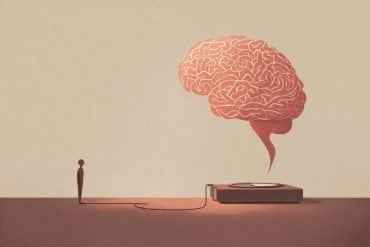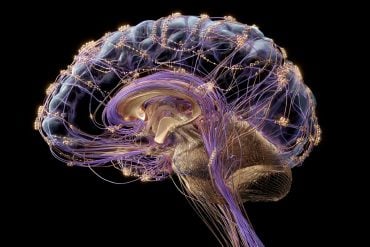Summary: Anger and stress result in worse baseline diastolic pressure and function. Findings demonstrate a link between stress, anger, and an increased risk of a cardiac event.
Source: Yale
Mental stress and anger may have clinical implications for patients with heart failure according to a new report published in the Journal of Cardiac Failure.
Heart failure is a life-threatening cardiovascular disease in which the heart is damaged or weakened. This can lead to a reduced ejection fraction, in which the heart muscle pumps out a lower amount of blood than is typical with each contraction.
In this study of patients who had heart failure with reduced ejection fraction, the authors — including researchers at Yale — evaluated the effects of stress and anger on diastolic function. Diastolic function describes the ability of the heart to relax and refill between muscle contractions and is predictive of mortality risk.
For one week, participants completed daily questionnaires about their experiences of stress, anger, and negative emotions during the previous 24 hours. Participants then completed a standardized “mental stress” protocol in which they solved challenging arithmetic problems and described a recent stressful experience. Echocardiograms were performed to assess diastolic function at rest and during the stress task.
Patients who reported experiencing anger in the week prior to the laboratory mental stress protocol exhibited worse baseline resting diastolic pressure, the researchers said. Furthermore, most patients demonstrated stress-provoked changes in diastolic function, including decreased early relaxation and increased diastolic pressure.
“Mental stress is common in patients with heart failure due in part to the complexities of disease self-management, progressively worsening functional limitations, and frequent symptom exacerbations and hospitalizations,” said the lead author Kristie Harris, a postdoctoral associate in cardiovascular medicine at Yale.

“We have evidence that patients who experience chronically elevated levels of stress experience a more burdensome disease course with diminished quality of life and increased risk for adverse events. Clarifying the relevant behavioral and physiological pathways is especially important in the era of COVID-19 when the typical stressors of heart failure may be further compounded by pandemic-related stressors,” Harris said.
“Factors such as mental stress and anger often go unrecognized and are under-addressed,” said Matthew Burg, a Yale clinical psychologist and senior author of the study. “This study contributes to the extensive literature showing that stress and anger affect clinical outcomes for patients with heart disease, adding chronic heart failure to the list that includes ischemic heart disease (narrowed arteries) and arrhythmic disease.”
Burg said that while stress management and related techniques have been shown to reduce risk for adverse events among patients with ischemic heart disease (narrowed arteries), further work is needed to identify factors that increase vulnerability to the effects of stress in heart failure, and to determine whether stress management can improve outcomes for these patients.
About this stress research article
Source:
Yale
Contacts:
Elisabeth Reitman – Yale
Image Source:
The image is in the public domain.
Original Research: Closed access
“Impact of Mental Stress and Anger on Indices of Diastolic Function in Patients with Heart Failure” by Kristie M. Harris, John S. Gottdiener, Stephen S. Gottlieb, Matthew M. Burg, Shuying Li, David S. Krantz. Journal of Cardiac Failure.
Abstract
Impact of Mental Stress and Anger on Indices of Diastolic Function in Patients with Heart Failure
Background
Under controlled conditions, mental stress can provoke decrements in ventricular function, yet little is known about the effect of mental stress on diastolic function in patients with heart failure (HF).
Methods and Results
Twenty-four HF patients with ischemic cardiomyopathy and reduced ejection fraction (HFrEF; n=23 men; mean LVEF=27±9%; n=13 with baseline elevated E/e’) completed daily assessment of perceived stress, anger, and negative emotion for 7 days, followed by a laboratory mental stress protocol. 2D Doppler echocardiography was performed at rest and during sequential anger recall and mental arithmetic tasks to assess indices of diastolic function (E, e’, and E/e’). Fourteen patients (63.6%) experienced stress-induced increases in E/e’, with an average baseline to stress change of 6.5±9.3, driven primarily by decreases in early LV relaxation (e’). Age-adjusted linear regression revealed an association between 7-day anger and baseline E/e’; patients reporting greater anger in the week prior to mental stress exhibited higher resting LV diastolic pressure.
Conclusions
In patients with HFrEF, mental stress can provoke acute worsening of LV diastolic pressure, and recent anger is associated with worse resting LV diastolic pressure. In patients vulnerable to these effects, repeated stress exposures or experiences of anger may have implications for long-term outcomes.






